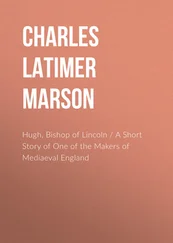Paul Vinogradoff - Villainage in England - Essays in English Mediaeval History
Здесь есть возможность читать онлайн «Paul Vinogradoff - Villainage in England - Essays in English Mediaeval History» — ознакомительный отрывок электронной книги совершенно бесплатно, а после прочтения отрывка купить полную версию. В некоторых случаях можно слушать аудио, скачать через торрент в формате fb2 и присутствует краткое содержание. Жанр: foreign_prose, Юриспруденция, История, foreign_edu, foreign_antique, на английском языке. Описание произведения, (предисловие) а так же отзывы посетителей доступны на портале библиотеки ЛибКат.
- Название:Villainage in England: Essays in English Mediaeval History
- Автор:
- Жанр:
- Год:неизвестен
- ISBN:нет данных
- Рейтинг книги:4 / 5. Голосов: 1
-
Избранное:Добавить в избранное
- Отзывы:
-
Ваша оценка:
- 80
- 1
- 2
- 3
- 4
- 5
Villainage in England: Essays in English Mediaeval History: краткое содержание, описание и аннотация
Предлагаем к чтению аннотацию, описание, краткое содержание или предисловие (зависит от того, что написал сам автор книги «Villainage in England: Essays in English Mediaeval History»). Если вы не нашли необходимую информацию о книге — напишите в комментариях, мы постараемся отыскать её.
Villainage in England: Essays in English Mediaeval History — читать онлайн ознакомительный отрывок
Ниже представлен текст книги, разбитый по страницам. Система сохранения места последней прочитанной страницы, позволяет с удобством читать онлайн бесплатно книгу «Villainage in England: Essays in English Mediaeval History», без необходимости каждый раз заново искать на чём Вы остановились. Поставьте закладку, и сможете в любой момент перейти на страницу, на которой закончили чтение.
Интервал:
Закладка:
104
Bracton, f. 26 b, 200. Cf. Bract. Note-book, pl. 141: 'Dicit quod tunc temporis scilicet in itinere iusticiariorum tenuit ipse quamdam terram in uillenagium quam emerat, et tunc cognouit quod terra illa fuit uillenagium, et precise defendit quod nunquam cognouit se esse uillanum.'
105
Britton, ii. 13; Y.B. 20/21 Edw. I, p. 41: 'Kar nent plus neit a dire, jeo tenk les tenements en vileynage de le Deen etc. ke neit a dire ke jeo tenk les tenements … a la volunte le Deen etc.'
106
Bracton, f. 168.
107
Ibid., f. 199 b.
108
Palgrave, Rotuli Curiae Regis, ii. 192.
109
Placitorum Abbrev. 25, 29; Note-book, pl. 88. (The father is called Ailfricus in the Plea Roll Divers terms 2 John, 2 d., at the Record Office.)
110
Bract. Note-book, pl. 88.
111
Case 70: 'Consideratum est quod terra illa est uilenagium ipsius Hugonis (corr. Johannis), et quod si Martinus uoluerit terram tenere faciat consuetudines quas pater suus fecit, sin autem capiat terram suam in manum suam.'
112
Marginal remark in the Note-book to pl. 70: 'Nota quod liber homo potest facere uillanas consuetudines racione tenementi uillani set propter hoc non erit uillanus, quia potest relinquere tenementum.' Comp. Mr. Maitland's note to the case.
113
Bracton, f. 199 b: 'Unde videtur per hoc, quod licet liber homo teneat villenagium per villanas consuetudines, contra voluntatem suam ejici non debet, dum tamen facere voluerit consuetudines quae pertinent ad villenagium, et quae praestantur ratione villenagii, et non ratione personae.'
114
Cf. Blackstone's characteristic of copyholds: 'But it is the very condition of the tenure in question that the lands be holden only so long as the stipulated service is performed, quamdiu velint et possint facere debitum servitium et solvere debitas pensiones.' (Law Tracts, ii. 153.)
115
Bract, f. 200.
116
Bract. Note-book, pl. 1103: 'Et ideo consideratum est quod Willelmus conuictus est de uilenagio et si facere uoluerit predictas consuetudines teneat illam bouatam terre per easdem consuetudines, sin autem faciat Bartholomeus de terra et de ipso Willelmo uoluntatem suam ut de uillano suo et ei liberatur. Cf. Mr. Maitland's note.
117
I should like to draw attention to one more case which completes the picture from another side. Bract. Note-book, pl. 784: 'Symon de T. petit versus Adam de H. et Thomam P. quod faciant ei consuetudines et recta seruicia que ei facere debent de tenemento quod de eo tenent in uillenagio in T. Et ipsi ueniunt et cognoscunt quod uillani sunt. Et Symon concedit eis quod teneant tenementa sua faciendo inde seruicia quae pertinent ad uillenagium, ita tamen quod non dent plus in auxilium ad festum St. Mich. nec per annum quam duodecim denarios scilicet quilibet ipsorum et hoc nomine tallagii.'—The writ of customs and services was out of place between lord and villain. The usual course was distraint. The case is clearly one of privileged villainage, but it is well to note that although the services are in one respect certain, the persons remain unfree.
118
Bracton, f. 208 b.
119
Ibid., f. 200.
120
Bract. Note-book, pl. 63: 'Dicunt quod idem W. nullum habuit liberum tenementum quia ipse uillanus fuit et fecit omnimoda uilenagia quia non potuit filiam suam maritare nec bouem suum uendere. 1819: R. de M. posuit se in magnam assisam Dom. Reg. in comitatu de consuetudinibus et seruiciis que Th. B. petit uersus eum, unde idem Th. exigebat ab eodem R. quod redderet ei de uillenagio per annum 19 den. et aruram trium dierum et messuram trium dierum … et gersumam pro filia sua maritanda et unam gallinam ad Natale et tot oua ad Pascha et tallagium et quod sit prepositus suus. Set quia illa sunt servilia et ad uillenagium spectancia et non ad liberum tenementum, consideratum est quod magna assisa non iacet inter eos, set fiat inquisicio per xii,' etc. Cf. 794, 1005, 1225, 1661.
121
Bract. Note-book, 281: 'Et Prior dicit quod in parte bene recordantur set in parte parum dicunt quia iuratores dixerunt quod debuit dare xii. den. pro filia sua maritanda, et debuit plures alias consuetudines et petierunt respectum ut assensum habere possent a domino Roberto de Lexintona utrum hoc esset liberum tenementum ex quo sciunt quid debuit facere et quid non et nullum respectum habere potuerunt.'
122
Example—Bract. Note-book, pl. 1887. Fitzherbert, Abr. Villen. 38 (13 Ed. I): 'Quia predictus J. nullam probacionem producit neque sectam et cognoscit quod ille est in seisina … de patre predicti W. quem potuit produxisse ad probacionem, consideratum est quod predicti W. et R. liberi maneant.'
123
Bracton, f. 199. The jury came in only by consent of the parties.
124
Britton, i. 207; Fitzherbert, Abr. Villen. 37.
125
Court Rolls of Havering atte Bower, Essex, Augment. Off. Rolls, xiv. 38. (Curia—die Jovis proxima ante festum St. Bartholomaei Apostoli anno r. r. Ricardi II, 21mo.) 'Inquisicio … dicit … quod non est aliquis homo natiuus de sanguine ingressus feodum domini, set dicunt quod est quidam Johannes Shillyng qui Sepius dictus fuerat natiuus. Et dicunt ultra quod quidam Johannes Shillyng pater predicti Johannis fuit alienigena et quod predictus Johannes Shillyng quod ad eorum cognitionem est liber et libere condicionis et non natiuus.'
126
Fitzherbert, Abr. Villen. 32 (H. 19 Edw. II).
127
Ibid. 5 (13 Edw. I).
128
Fitzherbert, l. c.: 'E ce issu fuit trie par gents de paiis ou le maner est e nemi ou il nasquist par touts les justices.'
129
Rotuli Parliam. ii. 192. Hargrave's argument in the Negro Somerset's case is very good on all these points. Howell, State Trials, xx. 38, 39.
130
Bracton, 201; Britton, i. 202 sq.
131
Bracton, f. 6, and on many other occasions.
132
Co. Lit. 137, b. Cf. King Henry I's writ in favour of the Monastery of Abingdon. Bigelow, Placita Anglo-Normannica, 96: 'Facias habere F. abbati omnes homines suos qui de terra sua exierunt propter herberiam curie mee.' Henry II puts it the other way, p. 220: 'Nisi sunt in dominio meo.'
133
A most curious pleading based on the conceptions of Glanville occurs in a Cor. Rege case of 10 Henry III, which was pointed out to me by F. Maitland. See App. IV. Конец ознакомительного фрагмента. Текст предоставлен ООО «ЛитРес». Прочитайте эту книгу целиком, купив полную легальную версию на ЛитРес. Безопасно оплатить книгу можно банковской картой Visa, MasterCard, Maestro, со счета мобильного телефона, с платежного терминала, в салоне МТС или Связной, через PayPal, WebMoney, Яндекс.Деньги, QIWI Кошелек, бонусными картами или другим удобным Вам способом.
Mr. York Powell suggests that the limitation may have originated in the fact, that in early times a man could no more give away a slave from his family estate without the consent of the family than he could give away the estate itself or part of it. There was no reason for such limitation in the case of a slave that had been bought with one's private money. Hence the necessity of selling a slave in order to emancipate him. The conjecture seems a very probable one, but the question remains, how such ancient practice could have left a trace in the feudal period. The explanation in the text may possibly account for the tenacity of the notion.
Интервал:
Закладка:
Похожие книги на «Villainage in England: Essays in English Mediaeval History»
Представляем Вашему вниманию похожие книги на «Villainage in England: Essays in English Mediaeval History» списком для выбора. Мы отобрали схожую по названию и смыслу литературу в надежде предоставить читателям больше вариантов отыскать новые, интересные, ещё непрочитанные произведения.
Обсуждение, отзывы о книге «Villainage in England: Essays in English Mediaeval History» и просто собственные мнения читателей. Оставьте ваши комментарии, напишите, что Вы думаете о произведении, его смысле или главных героях. Укажите что конкретно понравилось, а что нет, и почему Вы так считаете.












